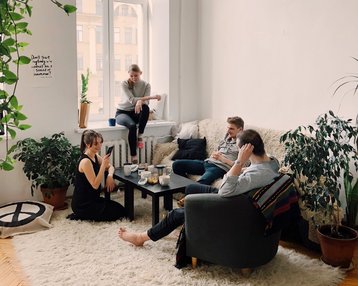Meeting people and experiencing a new way of life and outlook in another country are perhaps the most enriching aspects of spending time abroad. Just remember to keep an open mind and not expect everyone to act just like they do back home. Here are a few observations that foreigners have made about German culture:
Just as the stereotype often dictates, Germans tend to value good organization. Don’t be surprised if someone wants to work out the details right away instead of at some vague time in the future. This also means keeping appointments (or informing people when you can’t). Being on time shows respect, and German people will appreciate it.
Another famous German characteristic is their directness. Germans value good solutions and working together to find them. Thus, an exchange of ideas may include an honesty that people from less “direct” cultures find surprising. If you come from a culture where interactions between people are more indirect, it may be helpful to keep in mind that German frankness is cultural and to be expected – disagreement, for example, is often meant constructively, not as disrespect.
Germans are famous for their independence. They take their own bags to the supermarket and weigh the vegetables themselves. However, this doesn’t mean they don’t help each other! There is also a pronounced sense of community in Germany, an attitude that carries over to foreign visitors. This means that, in addition to their directness, Germans are also often helpful and quick to assist you. Don’t be shy about asking for help if you find you need it – there will always be someone happy to give you a hand!
A person’s title is important, especially in business. Be sure to use “Mr.” / “Ms.” or “Dr.” where applicable. First names are only for friends and other informal relationships.
Shaking hands: This is the established form of greeting, even if you have met before. Be sure to take the other hand out of your pocket, as well, and look the other person in the eye.
Punctuality: Try to be punctual or apologize if you are not.
Table manners: Say “Guten Appetit” (“goo-ten ap-pe-teet”) before eating. Keep both hands, but not your elbows, on the table. When you toast, look your partner in the eye!






